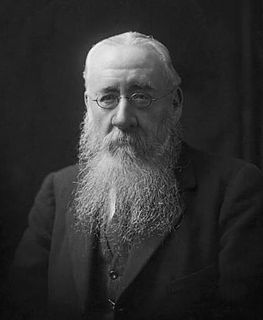A Quote by Cesare Beccaria
The lawgiver ought to be gentle, lenient and humane. The lawgiver ought to be a skilled architect who raises his building on the foundation of self-love, and the interest of all ought to be the product of the interests of each.
Related Quotes
Once in his life, a man ought to concentrate his mind upon the remembered earth, I believe. He ought to give himself up to a particular landscape in his experience, to look at it from as many angles as he can, to wonder about it, to dwell upon it. He ought to imagine that he touches it with his hands at every season and listens to the sounds that are made upon it. He ought to imagine the creatures there and all the faintest motions of the wind. He ought to recollect the glare of noon and all the colors of the dawn and dusk.
Living in the now is freedom from all problems connected with time. You ought to remember that sentence, you ought to memorize it, and ought to take it out, you ought to practice it, you ought to apply it. And most of all, you ought to rejoice in it because you have just heard how not to be wretched, miserable you any more but to be a brand new, and forever brand new man or woman.
In his book Stand Ye In Holy Places, President Harold B. Lee wrote that one is converted when his eyes see what he ought to see, his ears hear what he ought to hear and his heart understands what he ought to understand. "And what he ought to see, hear and understand is truth-eternal truth-and then practice it. That is conversion," he wrote.
Therefore the good man ought to be a lover of self, since he will then both benefit himself by acting nobly and aid his fellows; but the bad man ought not to be a lover of self, since he will follow his base passions, and so injure both himself and his neighbors. With the bad man therefore, what he does is not in accord with what he ought to do, but the good man does what he ought, since intelligence always chooses for itself that which is best, and the good man obeys his intelligence.
Hereby perceive we the love of God, because He laid down His life for us, and we ought to lay down our lives for the brethren." How often I think of that 'ought.' No sugary sentiment there. Just the stern, glorious trumpet call, OUGHT. But can words tell the joy buried deep within? Mine cannot. It laughs at words.


































